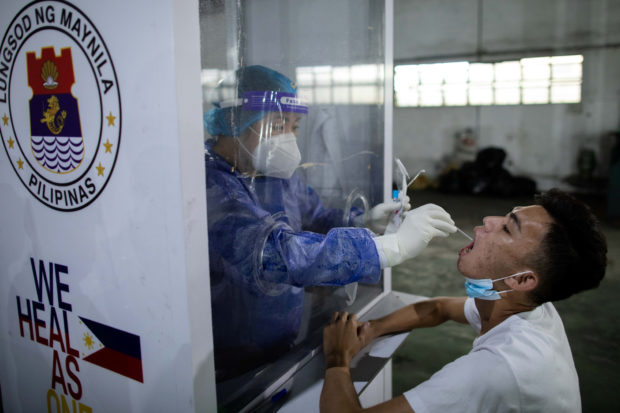MANILA, Philippines — The Department of Tourism (DOT) is calling for a lower price cap for COVID-19 tests, since the current cost of up to P5,000 remains “expensive and out of reach” for budget-conscious travelers.
Tourism Secretary Bernadette Romulo-Puyat on Friday said she has raised the issue before the Inter-Agency Task Force for the Management of Emerging Infectious Diseases (IATF-EID), pointing out that the added cost of COVID-19 tests can be quite significant especially for big families traveling together.
“A slash in the cost of RT-PCR tests would encourage more travelers to pursue their travel plans. In return, this will spur economic activities and reinvigorate the tourism industry,” Romulo-Puyat said in a statement.
The tourism secretary said reducing the price cap for COVID-19 tests will help travelers while at the same time ensuring that the test requirements imposed by local government units (LGUs) can be met.
Lowering of COVID-19 tests’ cost will also help returning overseas Filipinos and overseas Filipino workers who are also required to undergo such tests, said Romulo-Puyat.
Currently, RT-PCR tests range in cost from P1,500 to as high as P5,000. The DOT, however, noted that the IATF-EID had previously received reports of tests costing as much as P10,000.
In 2020, the government imposed a price cap of P5,000 for private laboratories and P3,800 for public laboratories.
More saliva test facilities
Meanwhile, Romulo-Puyat also called for the certification of more facilities performing saliva-based RT-PCR tests.
Currently, only the Philippine Red Cross has been certified by the Research Institute of Tropical Medicine to conduct such tests.
“If more hospitals and laboratories are certified to conduct saliva tests, this cheaper alternative will be more accessible to the public and will be recognized by more LGUs in their entry requirements for local travelers,” Romulo-Puyat said.
“But needless to say, the facilities conducting such tests should be thoroughly screened. We defer to the Department of Health in addressing this concern,” she added.
